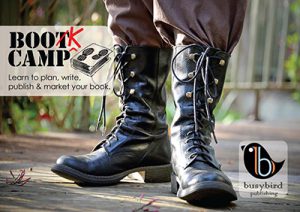

Month: October 2015
Welcome to the Busybird blog, where you can find helpful articles, updates, industry news and more. Make sure you stay up to date by signing up to our newsletter below.
P17 Issue 12 Launch and Mic Night
October 29, 2015 Once again we’re ready to unleash another issue of page seventeen upon the public. Are you excited? You should be excited. It’s another heady mix of prose and poetry from talented new writers alongside established veterans of writing. It’s got mystery, intrigue, alcoholism, teapots. What’s not to get excited about?
Once again we’re ready to unleash another issue of page seventeen upon the public. Are you excited? You should be excited. It’s another heady mix of prose and poetry from talented new writers alongside established veterans of writing. It’s got mystery, intrigue, alcoholism, teapots. What’s not to get excited about?
So here we have it: an open invitation to the page seventeen launch and mic night, hosted by Busybird Publishing.
Date: Wednesday 18 November
Time: 7.00pm
Place: Busybird Publishing, 2/118 Para Rd, Montmorency VIC 3094
Finger food and drinks will be provided. We’re celebrating the twelfth issue of page seventeen with a mic night featuring both Issue 12 contributors and local authors. We’ll also be announcing the winners of the 2015 competitions, and unveiling our cover image (if you’ll remember, that was a competition as well).
Please consider this an open invitation, to you and anyone you’d like to bring along. Let’s fill the room. Let’s celebrate both the new writers with their first publication and the established writers giving us another great pearl to read.
Beau Hillier | Editor, page seventeen
Book Writing Boot Camp
October 15, 2015 How many times have you heard someone say that they’re going to write a book? Or how long have YOU been saying that you’re going to do it? We talk to so many people here at Busybird Publishing who tell us this, then end the conversation with, ‘One day I’ll finish it’ or ‘I don’t know how to end it’ and the most common, ‘I don’t have the time’.
How many times have you heard someone say that they’re going to write a book? Or how long have YOU been saying that you’re going to do it? We talk to so many people here at Busybird Publishing who tell us this, then end the conversation with, ‘One day I’ll finish it’ or ‘I don’t know how to end it’ and the most common, ‘I don’t have the time’.
Most of these excuses are just because humans are prone to procrastinate. There are many reasons for this procrastination. They range from laziness, fear of failure, fear of success, laziness, having no plan, lack of passion, and laziness.
Our aim at Busybird is to help people get past these excuses and actually achieve something that they can be proud of. Writing and publishing a book is a huge achievement that is very doable, given the right tools. It doesn’t matter what you are trying to create. You might have a whole lot of poems in a drawer somewhere, you might have been jotting down bits and pieces for a fantasy novel, or you might want to share a passion for collecting teapots. There are any number of ways to tell a story but sometimes guidance is required to put it into a cohesive structure and to create a timeline so that the project doesn’t go on for ten years.
This is why we have created our Book Writing Boot Camp program. This is an intensive one-day event that will help you map out your idea, plan the writing (you want your story to be worth reading), plan the publishing (for self-publishing or submitting to publishers) and market the finished book.
Here’s a list of dates when Boot Camp will be held:
-
Sunday 14 February – Geelong
Saturday 27 February – Melbourne
Saturday 5 March – Adelaide
Saturday 19 March – Camberra
Sunday April 17 – Mildura
Saturday 7 May – Melbourne
Saturday 18 June – Melbourne
Tuesday 28 June – Tasmania
There will be no excuses after this. Get your hiking boots on!
Blaise van Hecke
– The Book Chick
Buyer Beware
October 8, 2015 Something we experience frequently here are talking to authors who’ve self-published through a ‘partnership publisher’, but come away frustrated, and sometimes even in tears.
Something we experience frequently here are talking to authors who’ve self-published through a ‘partnership publisher’, but come away frustrated, and sometimes even in tears.
Okay, so the question is, what’s a partnership publisher?
A partnership publisher will charge an author a certain amount of money, and offer certain services, e.g. editing, layout, cover design. On top of that, some partnership publishers will upsell services, e.g. marketing. Unfortunately, a number of these partnership publishers are unscrupulous and offer no transparency.
To understand transparency, you have to understand your publishing options.
If you submit to a traditional publisher – e.g. Penguin, Allen & Unwin, Text – and they accept you, you incur no costs. They take all the financial risk upon themselves, will assign you an editor, layout your book, design your cover, and market it however they see fit. In return, you might receive an advance (a sum of money up front), and then royalties from each book sold – usually about 10 or 12 percent. Arguably, the boon in being accepted by a traditional publisher is the validation of being accepted, and the branding of having that publisher’s emblem on your book – usually a mark of quality.
Now what’s happened with some partnership publishers is they’re preying on naïve authors and claiming to operate on a model similar to traditional publishers. Usually, this is done when they ‘assess’ your book, and deem it worthy of publication. They make out this is similar (if not the same) as submitting to and getting accepted by a traditional publisher. The one difference is you pay for the assessment. Then they’ll flatter you, ‘accept’ you, and then talk about sharing costs to bring your book out into the world. Whether they contribute to costs is anybody’s guess, but it’s likely they don’t.
Think of this business model: you pay an exorbitant amount (usually ranging in the thousands). The partnership publisher then uses a portion of that money to subcontract professionals (e.g. an editor, a designer) at a flat – and often low – rate to work on your book, and they keep the rest. You then pay for the printing. The partnership publisher has no material investment in your book. It’s doubtful they care much about your book outside of the money it’s making them. The subcontractors will care, because this is their livelihood and they’ll want to do the best job possible. The partnership publisher, though?
If you’re paying to bring your book out into the world, then you’re self-publishing. Don’t let any partnership publisher convince you otherwise. It’s great to be told that you’ve been accepted, it’s validating, it’s flattering, and as a writer, it’s about the most blissful feeling you could experience, but you know what? These people would accept gibberish. That’s not to denigrate your writing. It’s just how they operate. They’re not interested in quality, they’re not interested in contributing to the literary community, they’re not interested in sharing your story with the masses and trying develop a readership for you. They only want your money. That’s it. If they did earn royalties through your book, that’s a bonus (for them). But even that’s double-edged. Likely they’ve made some insane claim on your royalties (e.g. 50 percent – and let’s not forget, they’ve invested nothing in its production, other than being a medium who subcontracts the help).
With these klaxons sounding, you’re probably thinking that these partnership publishers are disreputable, and they operate from the shadows. They don’t. They’re right in the open and seem upstanding. They advertise on a national (and sometimes international) scale in reputable magazines, feed off your inexperience, thrive off your insecurity, and exploit your ego. This makes them sound insidious. And some of them are. I cannot say this enough: they only want your money.
There’s nothing wrong with self-publishing. It had a stigma twenty or so years ago, because people were releasing anything, and at the time, self-published books looked self-published – the paper stock was wrong, the layout was clumsy, and the binding (looked) like it had been stuck together with a glue-gun in somebody’s garage. But the publishing industry and all the services contained therein have become cheap and accessible. You can release a book now that is physically indistinguishable from books being released by multimillion-dollar traditional publishers, and it’s inexpensive.
Just be aware who you go to if you self-publish. We hear so many of these horror stories – people giving up so much money, giving up their life savings, and getting little in return. It’s why we try to nurture authors who come to us. So find somebody reputable, who cares about your book, and cares about helping you try to make it the best book that it can possibly be. Find somebody who won’t make claims on your royalties and try to retain ownership over your work for their own benefit.
Don’t be blinded by those who’ll tell you what you want to hear, and obligate yourself to deals that’ll ruin you financially – especially if you’re banking on income from your book. Not a lot of writers make money from writing. Sorry. That’s just reality, wherever you publish. You might. It happens. But it’s rare. So don’t go all-in, and especially don’t go all in because you’re being told what you want to be told.
There’s a lot of good people out there.
Do your research and find them.
The Busybird Creative Fellowship Opens Today!
October 1, 2015 When you’re initially finding your way as a writer or artist, trial and error often shapes your path. You’re oblivious to literary communities and usually brimming with naivety. It’s natural. Like a child stumbling out into the world, unaware of all the dangers. And whilst experience is often a great educator, it can also set you back, if not discourage you.
When you’re initially finding your way as a writer or artist, trial and error often shapes your path. You’re oblivious to literary communities and usually brimming with naivety. It’s natural. Like a child stumbling out into the world, unaware of all the dangers. And whilst experience is often a great educator, it can also set you back, if not discourage you.
So what do you do when you’re starting out? Especially if you really don’t know what’s out there? In all likelihood, unless you’re born into an artistic family or have artistic friends, there’s a good chance you’re not going to know about opportunities. You’ll simply think you’re a biggish fish in a big pond.
Courses and schooling are brilliant. You get to meet other writers and artists, make friends, create networks, and learn about what’s out there. You’ll also learn that the pond’s a little smaller than you might’ve originally conceived, and you’re not only a tiny fish, but one of just so many fishes.
The one issue with courses and schooling is the commitment. Not everybody can afford them – either financially, or in the time and energy that’s required. You can try shorter courses, if possible. Or join workshopping groups. Unfortunately, there’s no guarantee that any group will be amenable or informative. Some might be intimidating.
An avenue that Busybird Publishing has introduced is the Busybird Creative Fellowship, which has been designed purely with the fledgling writer or artist in mind. Applicants must have less than three short story/article publications or never have exhibited.
The winning applicant will receive:
- actual cash ($500)
- use of the Busybird Publishing studio gallery spaces
- use of the Busybird team as mentors
- free entry to any of our in-house workshops
- discounted publishing services.
Whilst all the material goodies are great – and I’m sure everybody could imagine how they’d put those to use – it’s the mentoring which arguably is the most invaluable.
The Busybird Team are comprised of artists who can use their experience to guide you through the formative stages of your journey, and accelerate your development.
The Busybird Creative Fellowship is perfect for any writer or artist trying to find their way.
Applications can be obtained by clicking this link.
